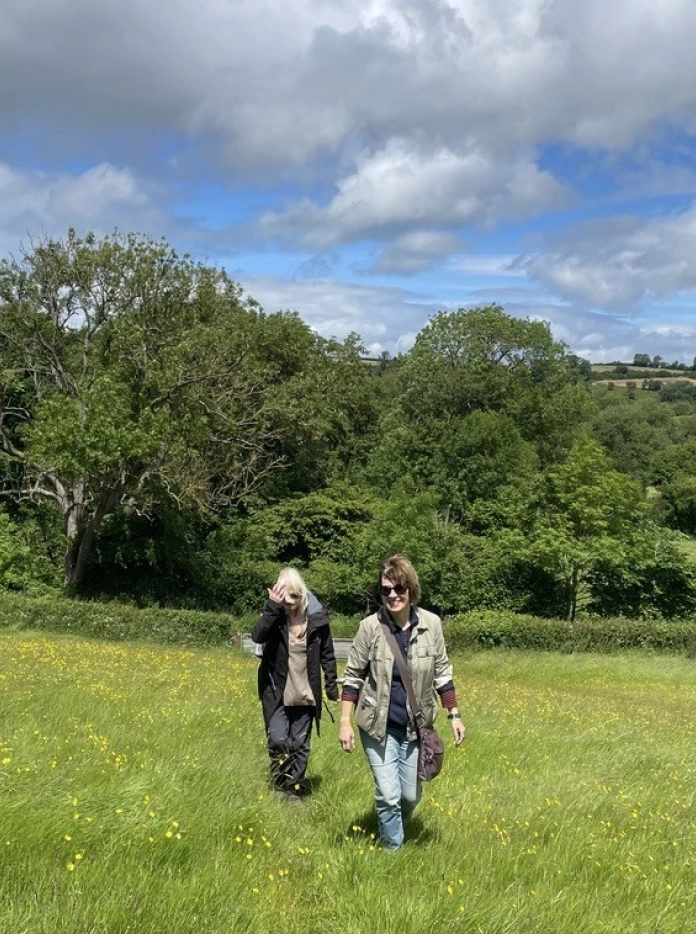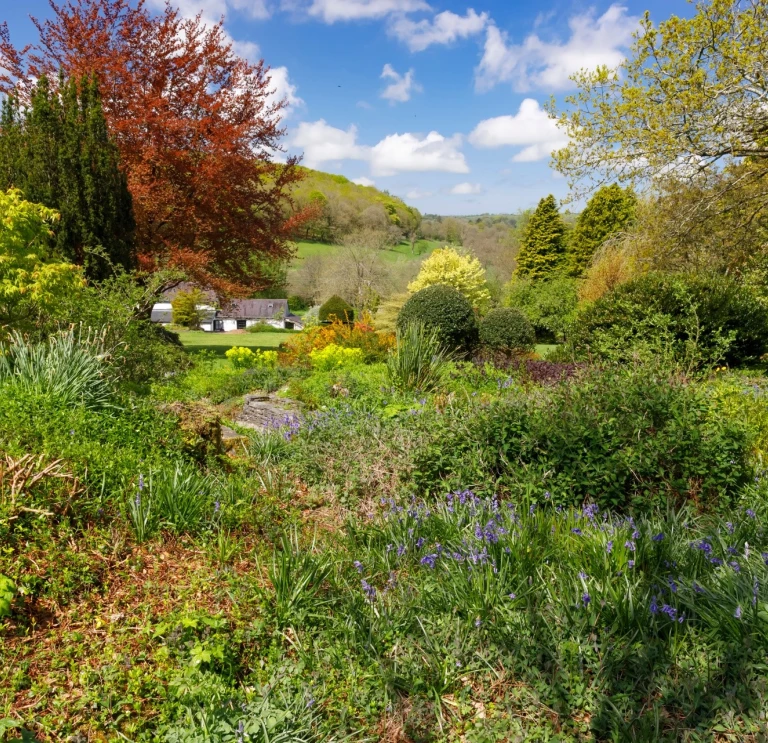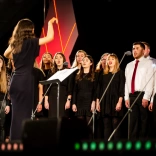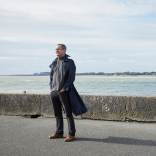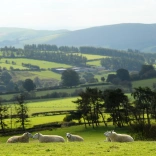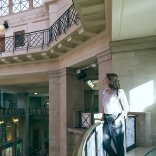There’s a bend on the A475 – a two-lane road snaking through the Teifi Valley in West Wales – that my heart anticipates every year when I arrive to teach a summer school in creative writing. It starts thumping harder and faster as my rental car draws near, reading subtle signs that my eyes miss, until I round a curve and the hills frame my windshield and I gasp.
As I absorb the hillsides, shaded chartreuse and jade beneath sun and clouds, I think the same thought over and over: ‘How can I live and breathe in Massachusetts without this view?’
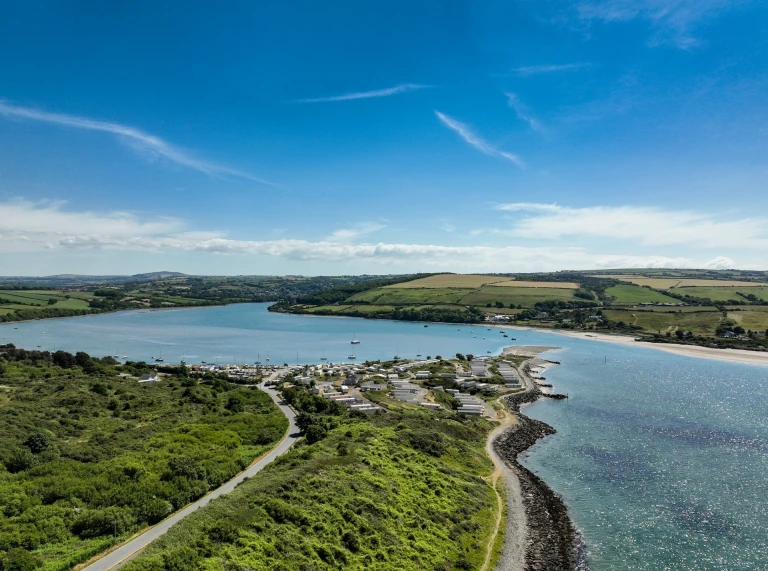
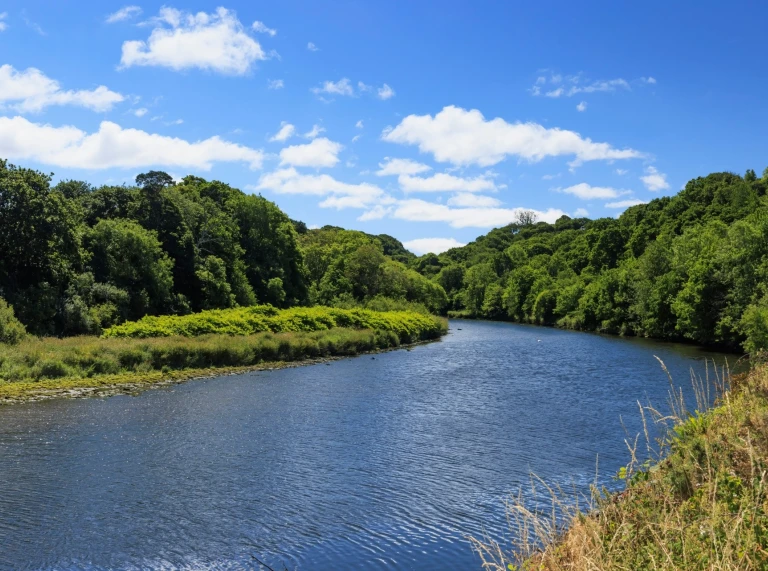
I’m American, but I went to Wales for graduate school at the University of Wales Trinity St David, in the town of Lampeter, where I now teach the summer school. That’s when I discovered the dictionary offers many definitions of “home”, including “the place someone lives permanently” and “the place someone thrives best”.
Going to Wales split the atom of home for me, because ever since I breathed in the damp, silky air up at Castell Allt-Goch, an Iron Age hill fort behind the college in Lampeter, hiked the bald flanks of Bannau Brycheiniog (the Brecon Beacons), imitated the sheep, and listened to the bumpy syllables of Welsh, those two definitions haven’t referred to the same place.
This experience of being always and never at home, of home as a once and future point on an ever-shifting horizon, is epitomised in the Welsh word hiraeth.
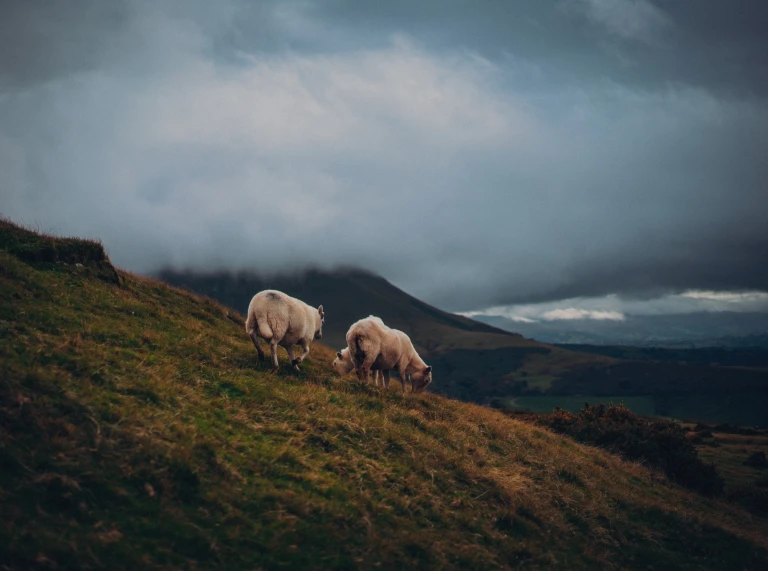
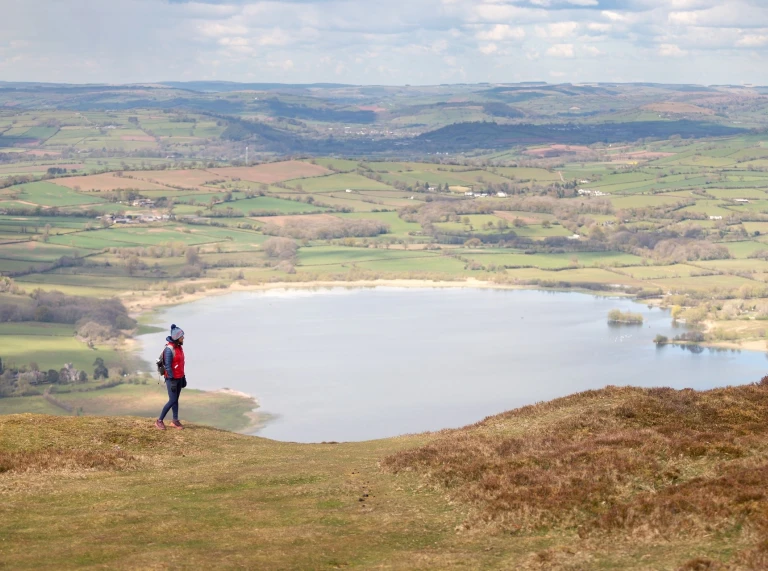
Though similar to the concept of hüzün in Turkish and saudade in Portuguese, hiraeth is a uniquely Welsh word. English musters terms like longing, homesickness, and nostalgia by way of translation. But they’re paltry substitutes.
Hiraeth gives a name to that sense of incompleteness you feel when you’re acutely aware of something missing in your life. Something you’ve left behind in the past – a home, a sense of feeling at home in yourself, an out-grown dream – or maybe an ideal you’ve invented that can never be realised, or a hope that perpetually eludes you as the future unfolds. At its core, hiraeth boils down to an awareness of the presence of absence, kindling a feeling in which pain and joy are braided too tightly to untangle.
It’s an idea interwoven into the Welsh psyche, felt on a national level. As the first colony of the English Empire, this idea of a lost, idyllic homeland is a poignant one that recurs in Welsh folklore and culture, from the tales of The Mabinogion, where Wales is depicted as a magical landscape populated by mighty heroes, to the opening lines of the Welsh national anthem, in which locals sing: Mae hen wlad fy nhadau yn annwyl i mi, Gwlad beirdd a chantorion, enwogion o fri. (This land of my fathers is dear to me. Land of poets and singers, and people of stature.)

But Hiraeth doesn’t always have to be so weighty. It’s a wonderfully elastic term, covering everything from the hiraeth of technology – whenever we make a technological leap forward we begin to yearn for the simplicity of the past – to hiraeth as loss of a way of life, like the Welsh miners who look back fondly on those long, hard days spent underground when the Welsh coal industry was still booming.
My enduring fascination with the idea of hiraeth has led me to pen a book on the topic, The Long Field – Wales and the Presence of Absence, a Memoir, the title of which refers to one literal English translation of the term hiraeth: “long field”. My own attraction to Wales, however, was actually born from an encounter with another “untranslatable” Welsh word, cynefin. It has many meanings, but cynefin as, “feeling at home in a place you’ve never been before,” is the one that applied to me.
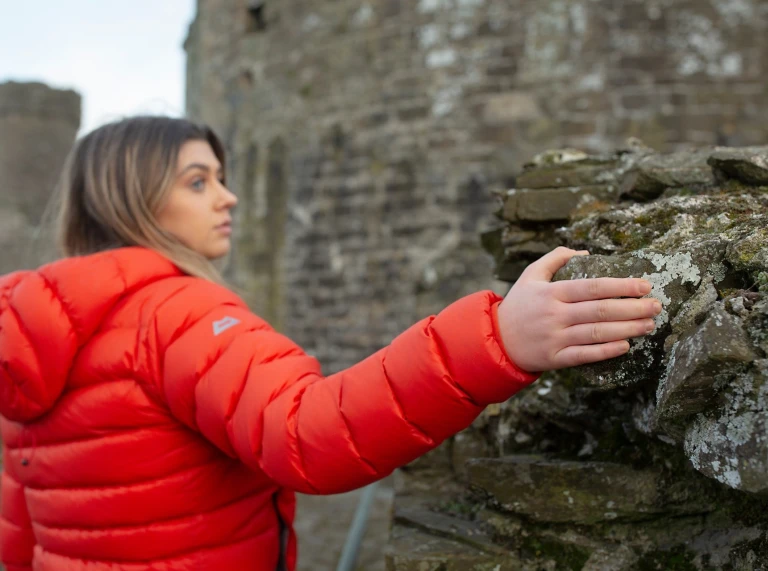
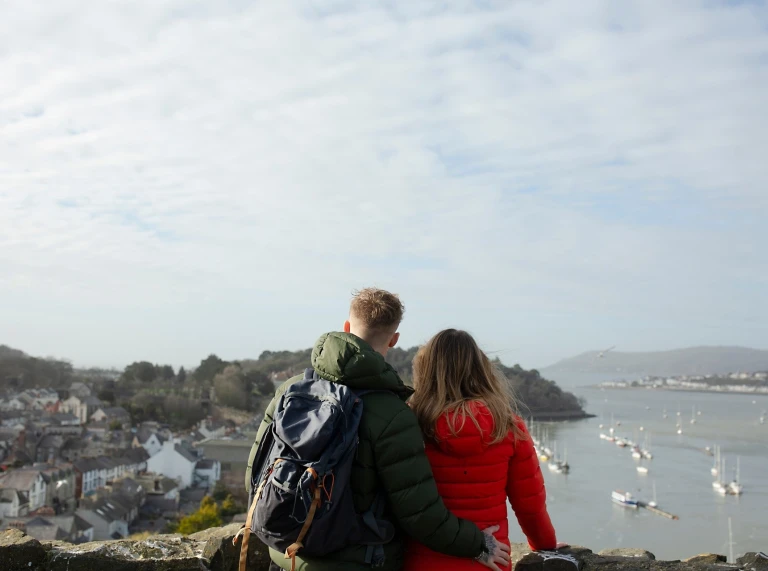
I grew up in New Jersey but never felt at home there. Too much 20th-century clutter obscured both the earth and any tangible evidence of a past on which I might build my imagination. But when I arrived in West Wales, I found a countryside that had been virtually treeless since the Middle Ages – the very opposite of New Jersey’s clutter.
From hilltops I could see how the earth had been formed – hills ribboning to the horizon, rivers sculpting out valleys – as well as remnants of our human past extending over the rim of history at places like Pentre Ifan, a Stone Age monument in the Preseli Hills in Pembrokeshire, where I feel most anchored on the planet. The land was so legible I felt I’d found the key to a map I’d carried in my head since I was a little girl but never before had been able to read.
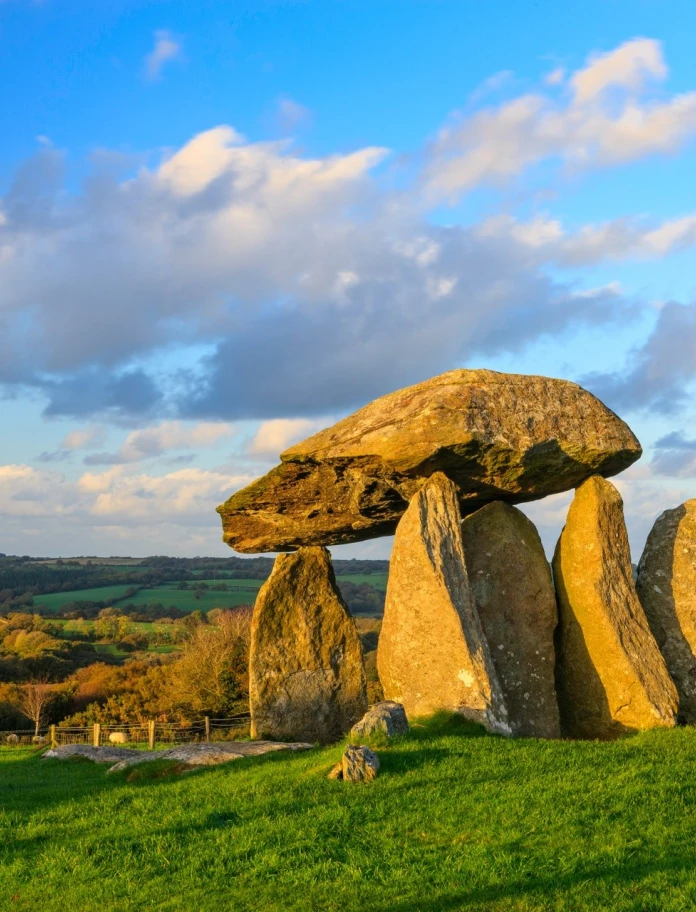
In other words, I felt at home for the first time in my life.
My Welsh friends laugh at my love of hiraeth.
‘Hiraeth just spins our wheels,’ they say, ‘while we yearn for the “has been and never was” Wales of the imagination.’
I understand that, but I’m American: I’m an eternal optimist! I say that where there’s loss, there’s absence; but where there’s absence, there is an imperative for creative invention. For hopes and dreams, hymns and poetry, art and scientific discovery to fill the void. Hiraeth is nothing less than the creative engine that’s kept Welsh culture humming for millennia.
And we Americans know it in our bones, too. Most of us have ancestral homes that we’ve never visited and may never set foot in, but that exert a gravitational pull on our sense of identity. Just as indigenous Americans seek a connection to homes they’ve lost in America. We all feel hiraeth for places we’ve never known, though we reside there in our dreams.
Sometimes, too, we discover places that make us feel at home by accident. While I technically live in the United States, I will always let out a breath of relief and think, “I’m home!” when I round that bend in the Teifi Valley near Lampeter. It’s not where I live, but where I flourish best. The gap between the two, filled with longing and imagination, is where hiraeth abides.
